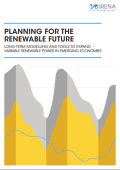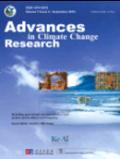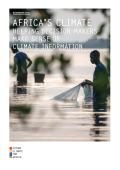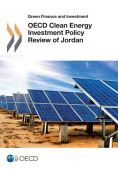
Ambitious national commitments, international agreements, and rapid technological progress have prompted countries around the world to turn increasingly renewable energy to expand their power infrastructure. However, the variability of solar and wind energy – two key sources for renewable power generation – presents new challenges.
Proactive energy planners will address the challenges of variable renewable energy (VRE) integration directly, starting with long-term investment choices. Techno-economic assessments can help to inform policy development and set optimal targets for renewable power uptake. Scenario modelling, meanwhile, has become a critical planning tool for the power sector, with considerable knowledge being acquired in certain markets on how to represent VRE in long-term models.
This report highlights the findings from AVRIL (“Addressing Variable Renewable Energy in Long-term Energy Planning”), a project by the International Renewable Energy Agency (IRENA) that has identified the best practices in long-term planning and modelling to represent high shares of VRE.

Low carbon development has gained policy prominence and is a concern of both environment and development policy globally and in China and India. This paper discusses the role of China and India as important global actors in light of development imperatives in the two countries. The article then looks at emerging approaches in the two countries related to financing, science, technology & innovation policy, and sub-national actions. The objective is to review efforts in China and India for contributing to learning experiences for other countries. The final section discussed the ways forward in terms of examining the role of China and India in terms of national policy strengthening as well as in global agenda setting. Implementation of sub-national initiatives in both countries faces challenges due to lack of adequate financing as well as knowledge such as greenhouse gas inventories and disaggregated resource and socio-economic assessments.

African decision-makers need reliable, accessible, and trustworthy information about the continent’s climate, and how this climate might change in future, if they are to plan appropriately to meet the region’s development challenges. The Future Climate for Africa report, Africa’s climate: Helping decision-makers make sense of climate information, is designed as a guide for scientists, policy-makers, and practitioners on the continent. The research in this report, written by leading experts in their fields, presents an overview of climate trends across central, eastern, western, and southern Africa, and is distilled into a series of factsheets that are tailored for specific sub-regions and countries. Some of these capture the current state of knowledge, while others explore the ‘burning scientific questions’ that still need to be answered.

Scaling up investment in renewable power can significantly contribute to addressing many of Jordan’s crucial challenges. These include: sustaining economic growth; improving energy security and reducing fossil-fuel consumption and imports; and reducing fiscal pressure linked to costly support to fossil-fuel imports. Unlike some of its neighbours in the Middle East and North Africa (MENA) region, Jordan has few fossil fuel resources of its own and imports around 96% of its total primary energy supply. Concerns over energy security and fossil-fuel imports dependency have intensified in Jordan due to political events in the region, including gas supply interruptions since 2011, and more recently, the rapid growth in energy demand caused by a large influx of more than one million refugees and asylum seekers, mostly from Syria and Iraq.
Stocktaking on Inclusive Green Economy in Central Asia and Mongolia: A Sub-Regional Perspective was produced as part of the United Nations Environment Programme (UNEP) project “South-South Cooperation in Mongolia and Central Asian Countries: Sharing Knowledge on Inclusive Green Economies”. The project aimed to support Mongolia and Central Asian countries in developing their research capacity in the area of Green Economy and Ecological Civilisation and to share this knowledge with decision-makers and technical experts through knowledge exchange between China, Central Asian countries, and Mongolia.
